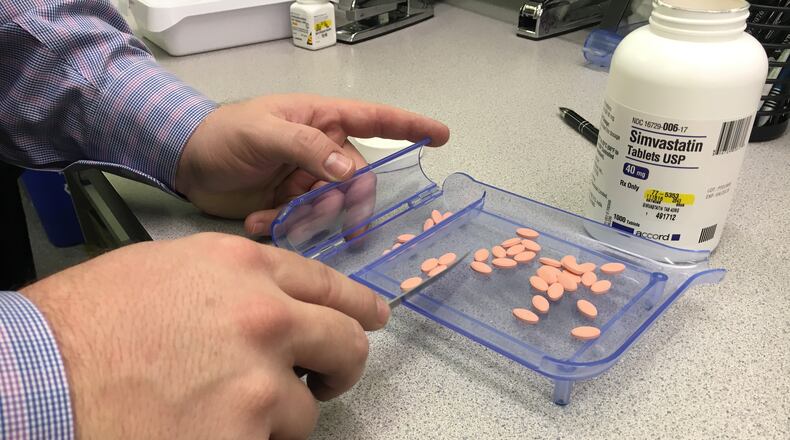Three bills aimed at reducing costs to patients and pharmacists by regulating pharmacy benefit managers passed the Georgia House of Representatives on Wednesday morning.
Pharmacy benefit managers act as middlemen between insurance companies, pharmaceutical companies and consumers to negotiate drug prices.They can also play a part in decisions including which drugs are covered, which are eligible for rebates and which pharmacies insurance holders can purchase from.
Pharmacy benefit managers are supposed to lower the cost of drugs for patients and insurance companies by brokering better deals, and that's what they say they do. But rising criticism alleges that they are putting their own profit motive as a middleman above savings for consumers.
READ | Surprise medical billing legislation passes Georgia House
House Bill 946 would enact sweeping reform of pharmacy benefit managers, including barring them from charging an insurance company more for a drug than it cost from a pharmacy. Pharmacy benefit managers could not bar a cheaper version of a drug from insurance policy coverage or require policy holders to fill prescriptions at specific pharmacies. The bill would also allow the Georgia insurance commissioner more oversight over the industry and increase penalties for violating state regulations.
“Please stand up with me against these heinous, heinous practices,” said bill sponsor Rep. David Knight, R-Griffin, before the House voted 165-1 in favor of the legislation. “Please help me take health care back for Georgians.”
Knight said the bill will increase transparency and help manage drug costs. But the Pharmaceutical Care Management Association, which represents pharmacy benefit managers, says the legislation would actually lead patients to pay more — $580 million in the first year, the group said in a statement.
“Pharmacy benefit managers fight every day for patients against rising drug costs, and we commend Georgia state legislators for trying to address this growing crisis,” the group said in a statement. “But restricting PBMs’ ability to negotiate on behalf of patients is the wrong prescription for Georgia — and does nothing to address the real problem behind out-of-control prescription drug prices.”
Another Knight-sponsored bill would allow the state to consider removing pharmacy benefit managers from its Medicaid plan altogether. Passed unanimously, House Bill 947 would allow the state to conduct a study to see how much money it could save. If the total exceeds $20 million, the Georgia Department of Community Health would manage Medicaid pharmacy benefits on its own.
Knight has previously cited West Virginia as an example of how Georgia could achieve this. The state saved $54 million by taking over its own Medicaid pharmacy benefits, according to a study the state commissioned. The insurance industry has disputed the study's findings.
Pharmacy benefit managers also conduct audits of the pharmacies they work with to ensure they are paying for the right drugs. House Bill 918, passed unanimously Wednesday, puts more restrictions on the audit process and how much pharmacies could have to reimburse the benefit manager for errors.
Rep. Sharon Cooper, R-Marietta, described the current audit process as “nitpicking” and targeting the most expensive drugs for potential repayments.
“There’s a big dark secret: When they pull out a prescription to look at, they know which ones are most costly,” Cooper said. “They ask to see the one that cost $400 so that’s $400 in their pocket.”
All three bills go on to the Senate for approval. The Senate is expected to hear a near-identical bill to HB 946, Senate Bill 313, this week.
Staff writer Ariel Hart contributed to this story
About the Author
Keep Reading
The Latest
Featured

